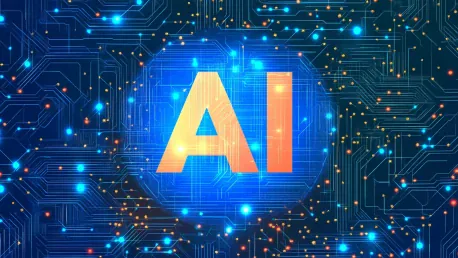The rapid evolution of Artificial Intelligence (AI) and the substantial hype around its transformative potential have prompted numerous debates in the tech industry and among academics. As seen in late 2024, the allure surrounding generative AI is particularly compelling, leading many to draw parallels with past technology bubbles. Prominent entities like OpenAI fuel these narratives, often in ways that dismiss foundational cautionary principles like Amara’s Law. This law suggests technological impacts are often overestimated in the short term while their long-term effects are underestimated. However, with rising investments and media attention, discerning whether this trend heralds another tech bubble or a genuine leap forward remains critical.
The Cautionary Tales from Historical Tech Bubbles
Overhyped Short-Term Applications
Emerging technologies have repeatedly fallen prey to exaggerated short-term expectations that fail to materialize promptly. Yale University ethicist Luciano Floridi draws an insightful parallel between the current AI frenzy and historical tech bubbles, such as the Dot Com boom. In his September 2024 paper, Floridi argues that while AI promises to reshape industries profoundly, its immediate applications often fall short of the inflated promises. Comparing AI’s adoption to that of electricity, which took many decades to revolutionize industries, he posits that AI will likely follow a similar path—requiring years rather than months to fully embed into society.
Floridi’s analogy extends to the cyclical nature of these technological advancements. Just as electricity’s integration faced gradual adoption hurdles, it is anticipated that AI will experience periods of intense innovation, followed by phases of stagnation, often referred to in the industry as “summers” and “winters.” These cycles were historically driven by technological capability constraints rather than financial speculation. However, today, the speculative investments into AI amplify these cycles, introducing the risk that financial pressures could artificially inflate the technology’s current impact, thereby fostering conditions ripe for a bubble.
Disconnect Between Market Speculations and Financial Fundamentals
Another critical aspect underscored by Floridi is the burgeoning disconnect between investor enthusiasm and actual financial fundamentals in the AI sector. The mushrooming investments are driven more by the imagined future potentialities of AI than by its present profitability or technological readiness. This speculative fervor has prompted colossal capital flows into the industry, reminiscent of the prelude to past tech bubble bursts. By critically examining these patterns, Floridi and other academics caution that without substantive technical and financial grounding, these investments may not yield sustainable innovation or broad-based economic benefits.
The resulting financial bubbles could have detrimental repercussions on the sector, creating a volatile environment where genuine innovation risks being subsumed by unbridled speculation. Historical precedents demonstrate that these speculative surges often culminate in abrupt crashes, as seen with the Dot Com bust. Therefore, contemporary investors and stakeholders should meticulously distinguish between speculative ventures and those backed by credible technological evaluations and solid financial bases.
Contrasting Opinions and Investment Patterns
Analogies to Foundational Technologies
In contrast to the cautionary perspective, economists like Peter Oppenheimer from Goldman Sachs offer a more optimistic view of the ongoing AI investment trend. Oppenheimer likens generative AI to historically foundational technologies such as the construction of canals and the invention of the telephone, both of which experienced significant capital influxes and media attention during their early developmental phases. He argues that these technologies, much like AI today, warranted high levels of investment due to their far-reaching potential to reshape communication, commerce, and industry. Therefore, the current generative AI investment boom might reflect a necessary phase in the maturation of a transformative technology.
Despite acknowledging the risks of a potential bubble, similar to historical precedents, Oppenheimer maintains that the long-term promise of AI justifies the current investment enthusiasm. He contends that, akin to transformative technologies of the past, the short-term volatility and possible market corrections should be seen as integral parts of a broader developmental arc. This perspective suggests that while the immediate market impacts of AI may be subject to overestimation, the long-term benefits and foundational shifts warrant sustained investment and development efforts.
Focus on Sustainable, Long-Term Benefits
The rapid advancements in Artificial Intelligence (AI) and the enormous hype surrounding its transformative potential have ignited numerous debates within the tech industry and academia. As observed in late 2024, the fascination with generative AI is particularly intriguing, prompting many to compare it to previous technology bubbles. Influential players like OpenAI are significant contributors to these narratives, often sidelining essential cautionary principles such as Amara’s Law. This law implies that the short-term effects of technology are frequently overestimated, while their long-term implications tend to be underestimated. With the increase in investments and media coverage, it becomes crucial to determine whether this trend signifies the onset of another tech bubble or represents a real and significant technological leap forward. The ongoing dialogue around AI continues to evolve, reflecting both excitement and skepticism about the true impact of these emerging technologies on society and the economy.









